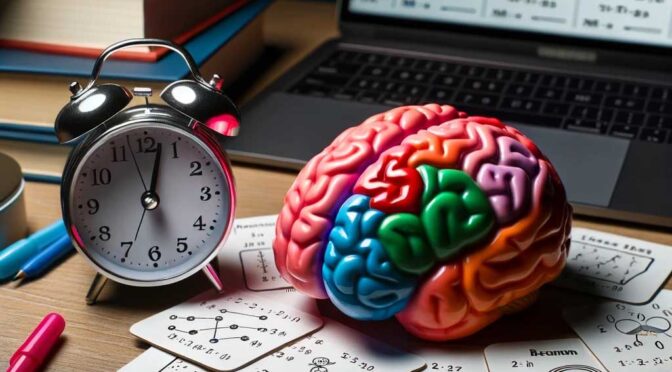This article draws its insights from the video “3 tips on how to study effectively” by TED-Ed, which delves into the science of learning and offers actionable study methods. The video, directed by Biljana Labović, discusses the results of a 2006 study involving surgical residents and reveals three study techniques that significantly improve information retention and application.
Contents
- The Brain’s Learning Mechanism
- 1. Self-Testing for Memory Reinforcement
- 2. Interleaved Learning for Better Retention
- 3. Spaced Repetition and the Role of Sleep
- Real-world Application: The Case of Surgical Residents
- The video
The Brain’s Learning Mechanism
The video begins by explaining how the brain learns and stores information, focusing on the roles of the hippocampus and the neocortex. When introduced to new information, the brain temporarily encodes it in neural clusters within the hippocampus. Repeated stimulation of these neurons strengthens their connections, eventually transferring the information to long-term memory stored in the neocortex. This process is believed to be facilitated by periods of rest and, most importantly, sleep, during which the brain actively works to consolidate knowledge.
1. Self-Testing for Memory Reinforcement
The first effective study technique highlighted is self-testing through the use of educational cards and quizzes. This method forces active retrieval of information, thereby strengthening and updating long-term memory. While students often prefer other study methods like rereading textbooks and highlighting notes, these practices can create a false sense of competence. Self-testing, on the other hand, allows for a more accurate assessment of what you actually know and can even make errors beneficial for long-term learning.
2. Interleaved Learning for Better Retention
The second technique, interleaved learning, involves mixing different topics or subjects during a single study session. This method not only reinforces memory but also allows for better understanding and differentiation between topics. The video suggests that the temporary forgetting and subsequent retrieval of information, induced by switching between topics, strengthens memory and enhances retention.
3. Spaced Repetition and the Role of Sleep
The final technique discussed is spaced repetition, which involves spreading study sessions over several days and incorporating periods of rest and sleep. During sleep, the brain actively works on storing and integrating information into the neocortex. Cramming information the night before an exam may seem logical but is counterproductive for long-term retention.
Real-world Application: The Case of Surgical Residents
The video refers to a 2006 study involving surgical residents to demonstrate the effectiveness of these techniques. Both groups studied surgery for the same amount of time, but one group’s training was crammed into a single day, while the other’s was spread over four weeks. The latter group performed significantly better, underscoring the importance of these brain-friendly study techniques.

